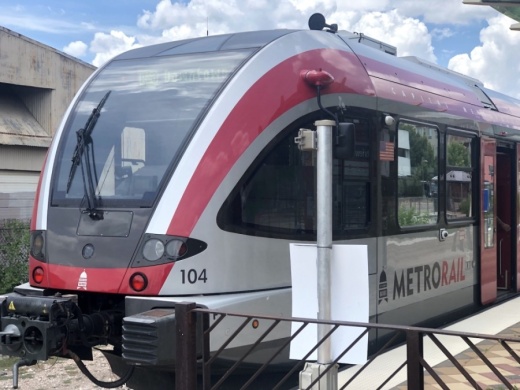The election will not ask voters to fund the $10 billion plan all at once. Instead, it will phase in the plan, first asking for enough tax revenue to fund a $7.1 billion portion, and leaving the rest of the improvements to future funding decisions.
The major elements of the plan are two light rail lines: one connecting North Austin, South Austin and the Austin-Bergstrom International Airport to downtown, and an underground rail station that would take train cars away from vehicle traffic.
Capital Metro and the city expect about $3.85 billion of the initial plan to be funded by local tax dollars, with the remaining 45% projected to be covered by the federal government. To raise that money, the city will ask voters to approve a tax rate increase of $0.0875 per $100 valuation, or about $344 per year for the owner of a $362,000 home, the median value in the city.
Council members approved the decision unanimously and expressed their public support for the project ahead of the vote.
District 6 Council Member Jimmy Flannigan said the financing method will help Austin avoid the mistakes of other cities, which he said have set themselves up for failure by not starting with a model that is sustainable in the long term.
"The money will not just pay to build [the system]; it will not just pay to operate it; but it will ensure its continued operation into the future for many generations," Flannigan said.
The proposition language on the ballot, according to the resolution council adopted, will read as follows.
"Approving the ad valorem tax rate of $0.5335 per $100 valuation in the City of Austin for the current year, a rate that is $0.0875 higher per $100 valuation than the voter-approval tax rate of the City of Austin, for the purpose of providing funds to implement a citywide traffic easing rapid transit system, known as Project Connect, and to fund associated investments that encourage affordable housing along transit corridors; address traffic congestion; expand service for essential workers; reduce emissions; decrease traffic fatalities; create jobs; provide additional access to jobs, education, health care, and to the airport; the transit system is to include a fixed rail and bus rapid transit system, including associated roadway, bikeway, sidewalk, and street lighting improvements; park & ride hubs; on-demand neighborhood circulator shuttles; innovative customer technology; and improved access for seniors and persons with disabilities; and is to be operated by the Capital Metropolitan Transportation Authority, expending its funds to build, operate and maintain the transit system; the additional revenue raised by the tax rate is to be dedicated to an independent board to oversee and finance the acquisition, construction, equipping, and operations and maintenance of the rapid transit system by providing funds for loans and grants to develop or expand transportation within the City, and to finance transit-supported anti-displacement strategies. Last year, the ad valorem tax rate in the City of Austin was $0.4431 per $100 valuation."





